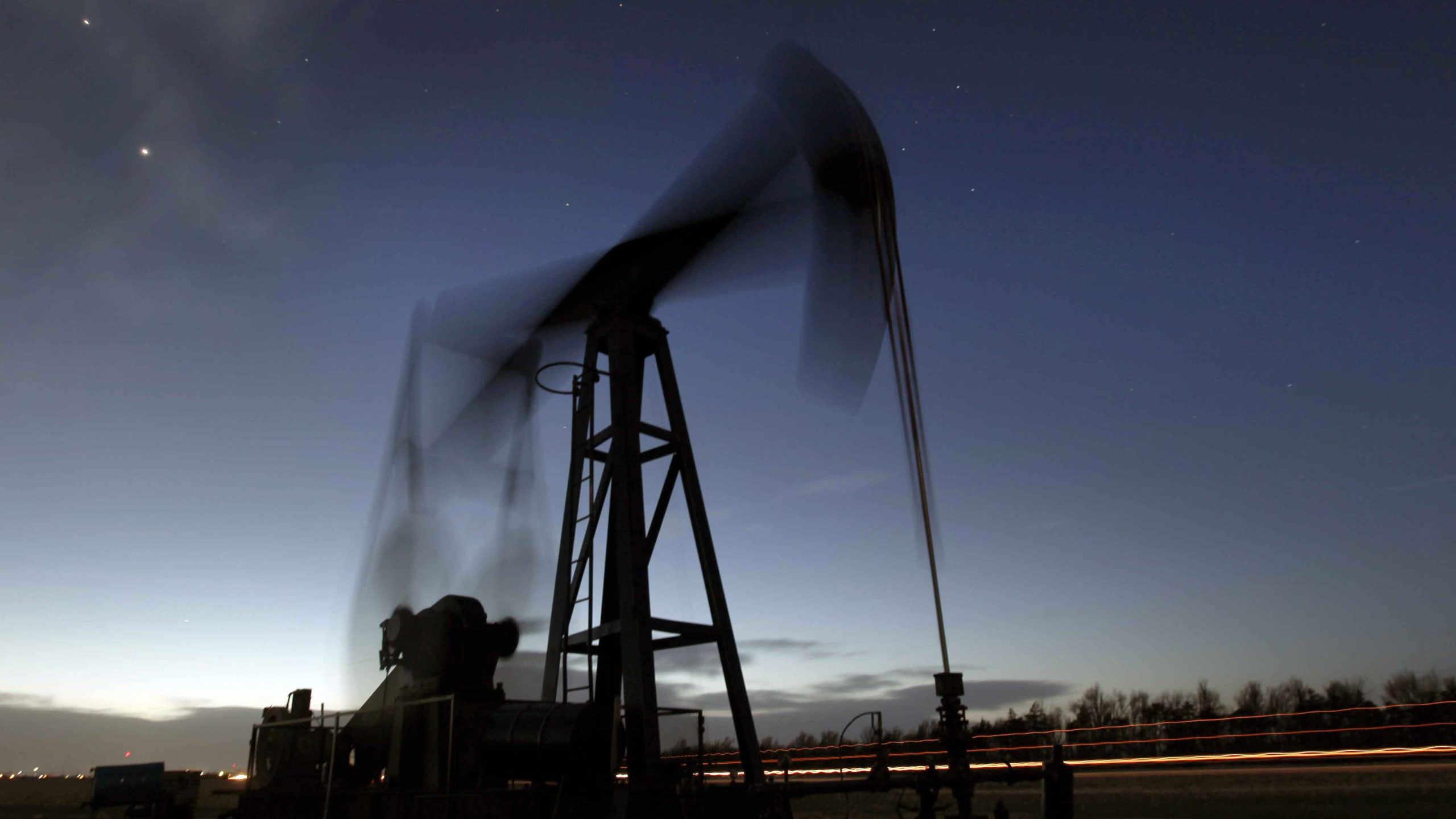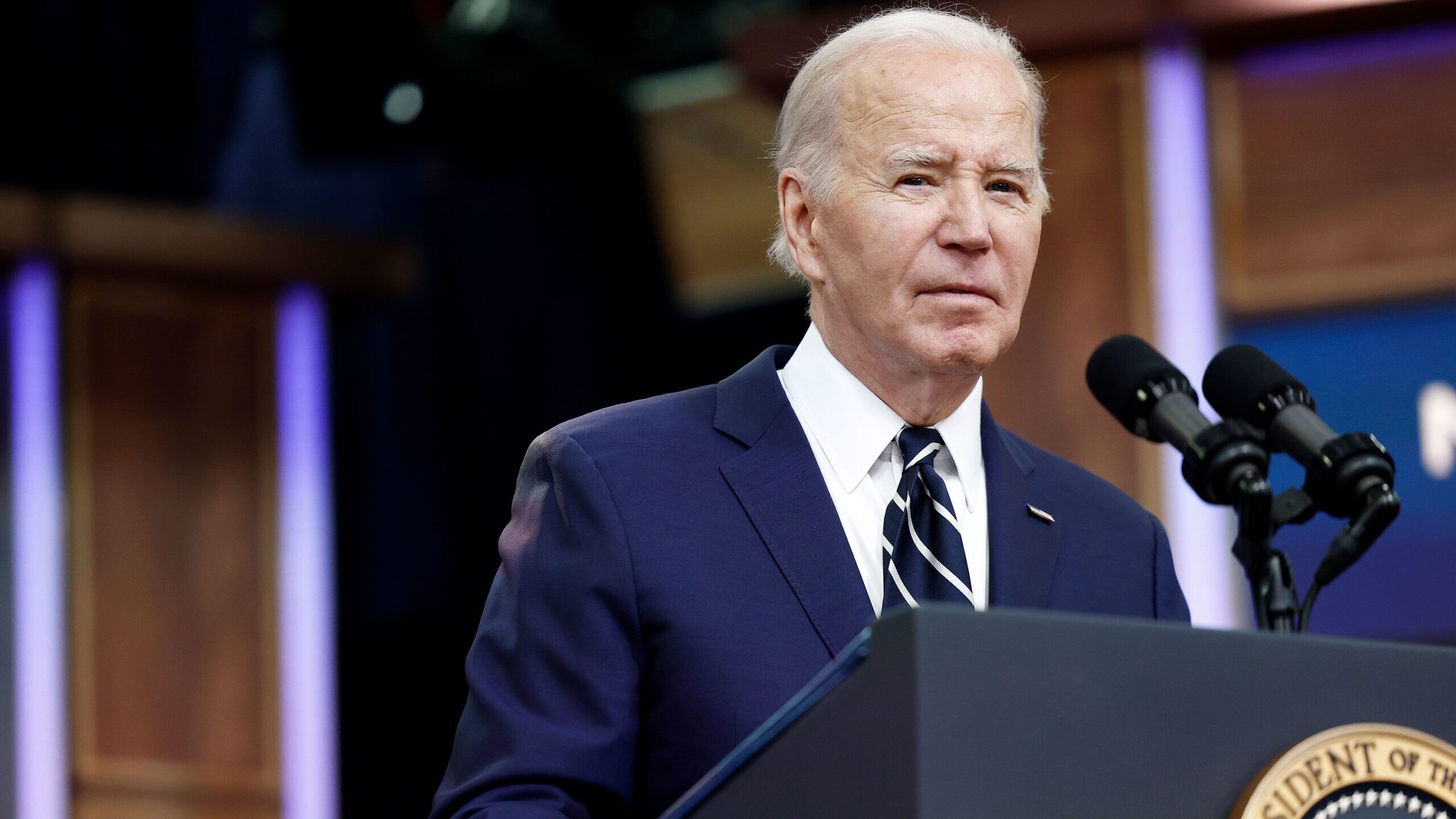Cutoff of Russian oil impacts Utah, but solutions aren’t simple
Apr 13, 2022, 1:46 PM

FILE - A pumping unit sucks oil from the ground near Greensburg, Kan. on March 6, 2012. AP Photo/Charlie Riedel.
SALT LAKE CITY — The cutoff of Russian oil supplies due to the war in Ukraine had a big effect on world oil prices. Utah is feeling the effects of this along with the rest of the country.
Newsmaker Breakfast, a monthly event highlighting issues impacting Utah, had a discussion about the issue Wednesday morning.
Suspending the state’s 31.9-cents-per-gallon tax on motor fuel was one item under discussion. Thom Carter, the energy advisor to Governor Spencer Cox, said UDOT officials have a “minor heart attack” each time the issue comes up.
The motor fuel tax directly funds road construction and maintenance efforts in Utah. Economist Steve Bannister favors that option.
Utah oil production
Utah’s oil producers in the Uintah Basin pull about 100,000 barrels of crude oil out of the ground every day. They send 80,000 barrels of that to Utah’s five refineries, which combine it with supplies from neighboring states. Utah oil producers will process around 200,000 barrels a day. Similarly, that is about the same amount the United States was importing from Russia before sanctions were created.
Getting Uintah Basin producers to give more is a hard problem to solve. Carter met recently with energy production firms. He said firms will face the same issues that other businesses do following the pandemic. The main issue is finding enough people to work.
“We need diesel in the Basin to get crude out of the basin, we need truck drivers. We need all these kind of people that we just have not seen an increase or a return to the pre-pandemic numbers,” Carter said.
The Biden administration has banned new leases for oil and gas on federal land. Even if the ban is lifted, the Gardner Institute’s Thomas Holst said it’s not a short-term solution.
“If the Ukraine war were over in two weeks, say . . . within a reasonable time frame, then those pressures are starting to go away pretty quickly, maybe before the new supply that opening up leases would free up,” Holst said.
Other solutions to high fuel prices
The growth in electric vehicle use is another way to address the issue of high fuel prices, but Thom Carter claims the federal government is “talking out of both sides of its mouth” about needing to produce minerals required for vehicle batteries and hydrocarbon fuels.
“We’ve got a Department of Energy that says, ‘We need to have more transmission, more electric vehicles, more minerals, all those things’ but you have a Department of the Interior that says, ‘But you can’t get them out of our land.'” said Carter.
PowerPoint slides from the Newsmaker Breakfast are available on the Gardner Institute website.
Related Stories:
- President Biden taps oil reserve for 6 months to control oil prices
- Oil industry insiders say Biden will have to make big changes to bring Utah gas prices down
- US banning Russian oil imports as Biden warns off ‘costs’













